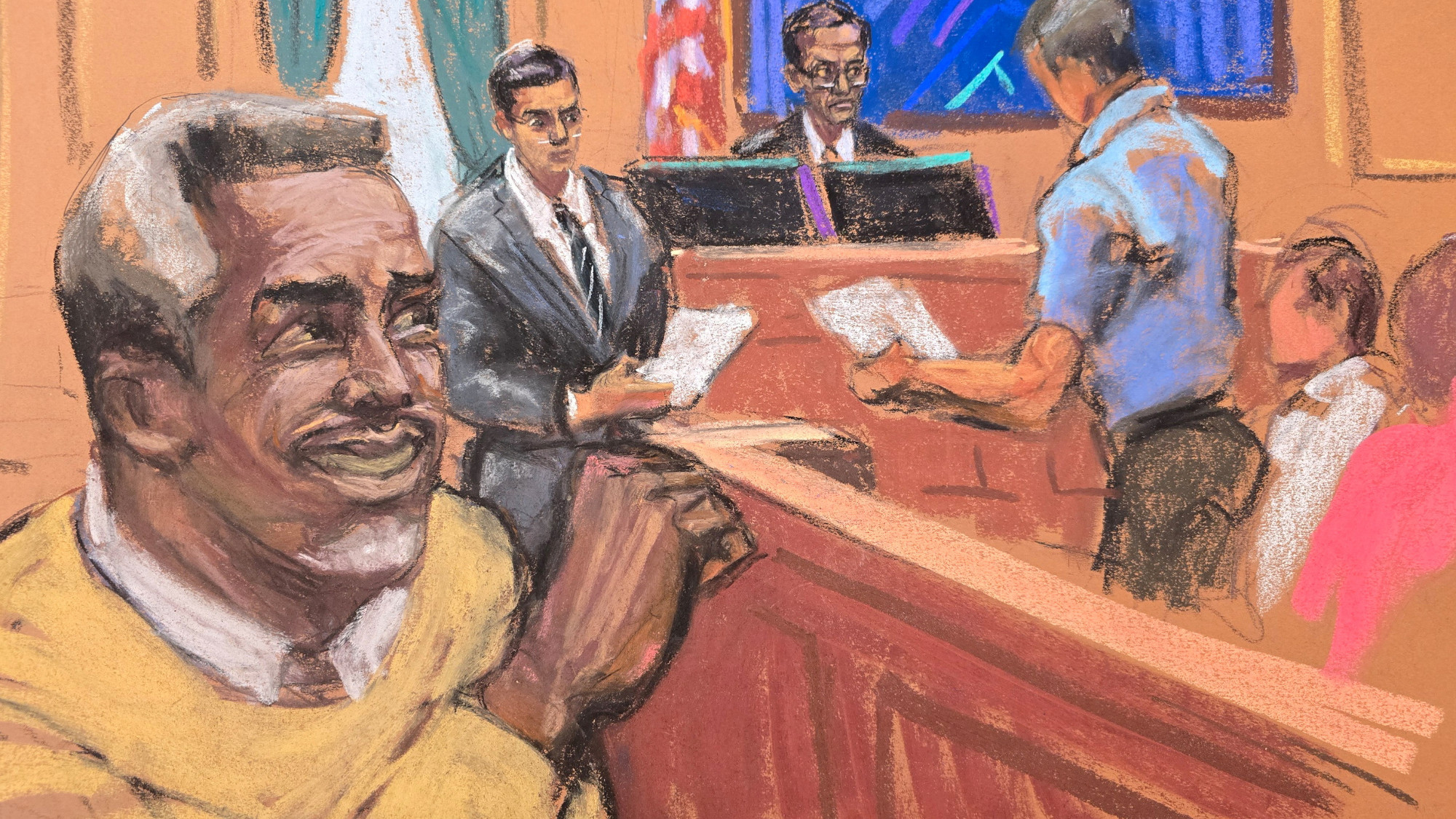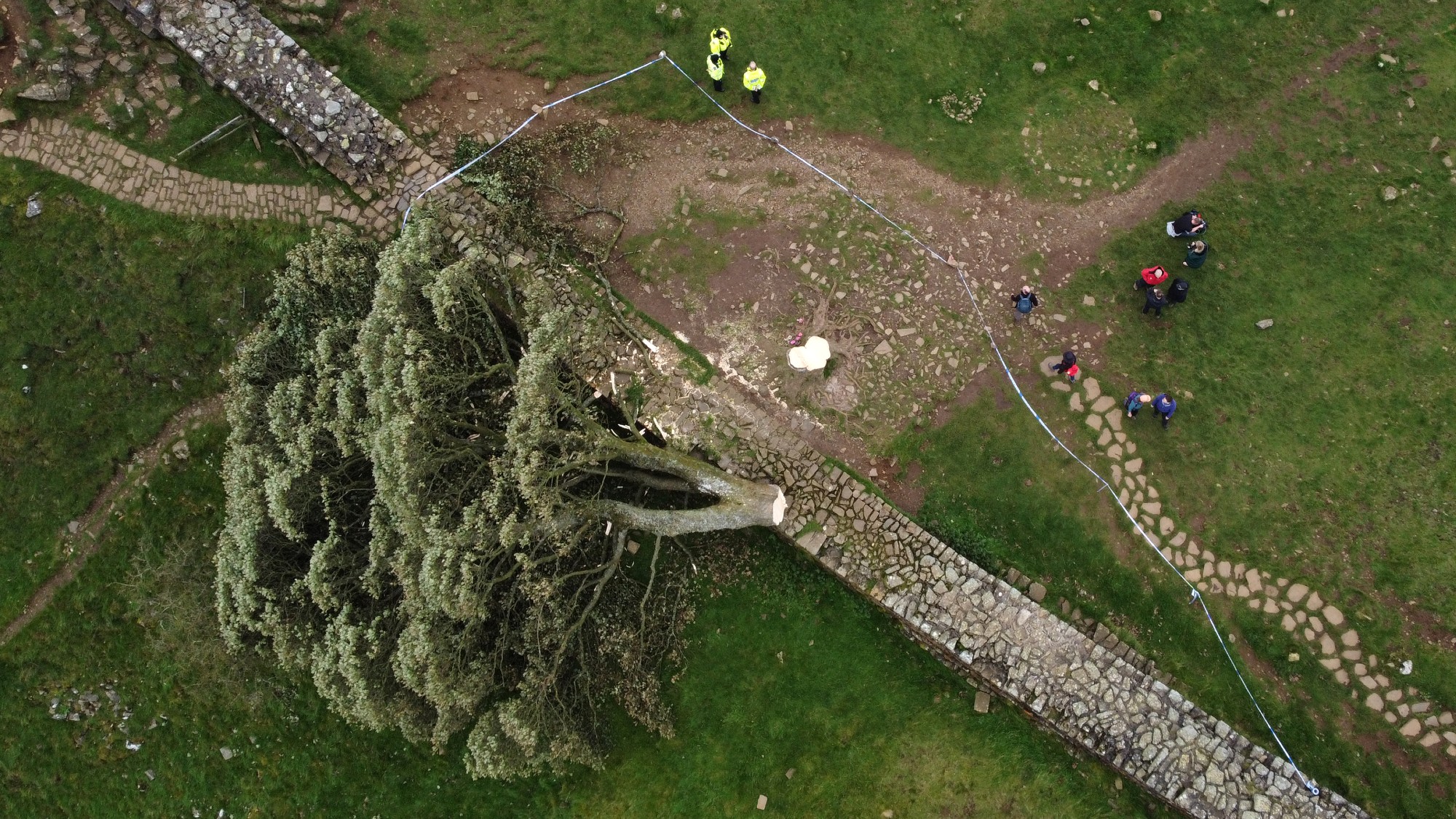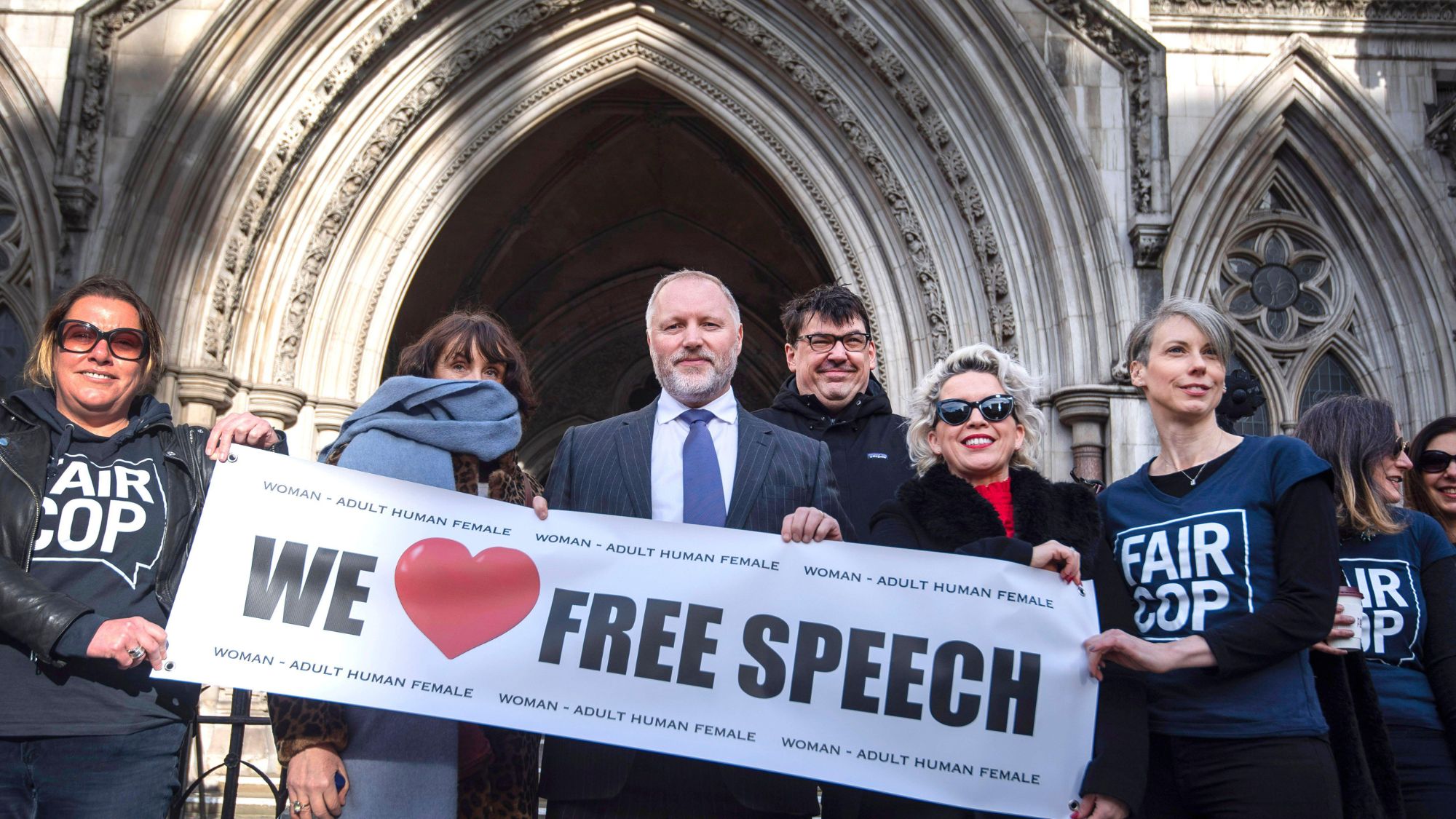Sarah Everard’s murder: a national reckoning?
Wayne Couzen’s guilty plea doesn’t ‘tidy away the reality of sexual violence’

A free daily email with the biggest news stories of the day – and the best features from TheWeek.com
You are now subscribed
Your newsletter sign-up was successful
Wayne Couzens hung his head in the dock at the Old Bailey today as he was sentenced to a whole life order for the kidnap, rape and murder of Sarah Everard.
Lord Justice Fulford said the former Metropolitan police officer had carried out “warped, selfish and brutal offending that was both sexual and homicidal”, and that the last moments of his victim’s life were “as bleak and agonising as it is possible to imagine”.
The judge added that the “degree of preparation” undertaken by Couzens should be stressed: he lied to his family about working on the night of the murder, spent at least a month travelling to London to research how to commit his crimes and went out “hunting a lone female to kidnap and rape”.
The Week
Escape your echo chamber. Get the facts behind the news, plus analysis from multiple perspectives.

Sign up for The Week's Free Newsletters
From our morning news briefing to a weekly Good News Newsletter, get the best of The Week delivered directly to your inbox.
From our morning news briefing to a weekly Good News Newsletter, get the best of The Week delivered directly to your inbox.
Yesterday, it emerged in court that Everard appeared to have been abducted in a “fake Covid arrest” on 3 March. Couzens “used police equipment, including his warrant card and training about Covid rules” in order to “deceive Sarah Everard into getting into a car with him”, reported The Guardian.
Couzens, who was sacked by Scotland Yard in July, had worked on Covid lockdown patrols in January, the court was told, and so would have known the “appropriate formal terms regarding potential breaches”, said the BBC.
The kidnapping was witnessed by a couple driving past in a car, but they “assumed Ms Everard must have done something wrong”. They believed they were witnessing an arrest made by an undercover police officer.
Prosecutor Tom Little QC told the court Everard’s ordeal could be described in five words: “Deception, kidnap, rape, strangulation, fire.”
A free daily email with the biggest news stories of the day – and the best features from TheWeek.com
Everard disappeared while walking home from a friend’s house near Clapham Common, in south London. She was said to have been falsely arrested and handcuffed at 9.34pm before being put in the back of a hired Vauxhall Astra. After driving 80 miles to Dover, Couzens transferred her to his own Seat car and continued to a remote area he knew well, where he raped her.
Following a major police investigation, Everard's remains were found in a woodland stream in Ashford, Kent, near land owned by Couzens, a week after she disappeared. Her body had been “put inside a refrigerator and set alight before being moved in builders' bags” bought for the task, reported the BBC. A post-mortem found that Everard, who was identified by her dental records, died as a result of compression of the neck.
Couzens pleaded guilty to the murder on 9 July, having already admitted to kidnap and rape. During the July hearing it emerged that Couzens had hired the white Vauxhall Astra three days before the attack. The police officer gave the rental company his personal details, including the mobile number on his Met police personnel file, and used his own bank card, The Guardian reports. “A roll of self-adhesive film” was also bought days before the attack, says the BBC.
Couzens finished work at 7am on the day of the abduction and picked up the hire car that afternoon, returning it the following morning.
At 9.35pm on 3 March, a bus camera “appeared to capture the moment [Everard] was intercepted by Couzens” in London, the BBC reported. The hire car was parked “with its hazard lights flashing” and “two figures could be seen standing” next to it, said the broadcaster.
Everard had been on the phone to her boyfriend just minutes before, and he reported her missing the following day.
Couzens phoned in sick on 8 March, according to the BBC. Just hours before his arrest on 9 March, the married father-of-two had been at “work keeping politicians and VIPs safe as part of the Metropolitan Police’s elite Diplomatic Protection Command”, The Telegraph reports.
A former member of the Civil Nuclear Constabulary, he underwent firearms training while “working as part of the team protecting Dungeness nuclear power station”, near his Kent home, the paper continues. As a member of Westminster’s Diplomatic Protection Command, Couzens later became responsible for “protecting MPs and other dignitaries in and around the capital”.
He was also a member of the Army Reserve for two years from 2002, serving the 3rd battalion, the Princess of Wales’s Royal Regiment, according to The Times.
Yesterday, Everard’s mother Susan told the court she was “tormented” about what her daughter had endured. “The thought of it is unbearable,” she said. “I am haunted by the horror of it.”
In the evenings, at the time her daughter was abducted, she lets out a “silent scream”, saying: “Don’t get in the car, Sarah. Don’t believe him. Run!” she said.
Her daughter, she concluded, “spent her last hours on Earth with the very worst of humanity”.
-
 Sepsis ‘breakthrough’: the world’s first targeted treatment?
Sepsis ‘breakthrough’: the world’s first targeted treatment?The Explainer New drug could reverse effects of sepsis, rather than trying to treat infection with antibiotics
-
 James Van Der Beek obituary: fresh-faced Dawson’s Creek star
James Van Der Beek obituary: fresh-faced Dawson’s Creek starIn The Spotlight Van Der Beek fronted one of the most successful teen dramas of the 90s – but his Dawson fame proved a double-edged sword
-
 Is Andrew’s arrest the end for the monarchy?
Is Andrew’s arrest the end for the monarchy?Today's Big Question The King has distanced the royal family from his disgraced brother but critics claim a ‘fit of revolutionary disgust’ could still wipe them out
-
 The Epstein files: glimpses of a deeply disturbing world
The Epstein files: glimpses of a deeply disturbing worldIn the Spotlight Trove of released documents paint a picture of depravity and privilege in which men hold the cards, and women are powerless or peripheral
-
 Death in Minneapolis: a shooting dividing the US
Death in Minneapolis: a shooting dividing the USIn the Spotlight Federal response to Renee Good’s shooting suggest priority is ‘vilifying Trump’s perceived enemies rather than informing the public’
-
 How the Bondi massacre unfolded
How the Bondi massacre unfoldedIn Depth Deadly terrorist attack during Hanukkah celebration in Sydney prompts review of Australia’s gun control laws and reckoning over global rise in antisemitism
-
 Diddy: An abuser who escaped justice?
Diddy: An abuser who escaped justice?Feature The jury cleared Sean Combs of major charges but found him guilty of lesser offenses
-
 Crime: Why murder rates are plummeting
Crime: Why murder rates are plummetingFeature Despite public fears, murder rates have dropped nationwide for the third year in a row
-
 The Sycamore Gap: justice but no answers
The Sycamore Gap: justice but no answersIn The Spotlight 'Damning' evidence convicted Daniel Graham and Adam Carruthers, but why they felled the historic tree remains a mystery
-
 What are grooming gangs? The UK scandal, explained
What are grooming gangs? The UK scandal, explainedThe Explainer Three-year inquiry will ‘root out this evil once and for all’, says home secretary
-
 NCHIs: the controversy over non-crime hate incidents
NCHIs: the controversy over non-crime hate incidentsThe Explainer Is the policing of non-crime hate incidents an Orwellian outrage or an essential tool of modern law enforcement?